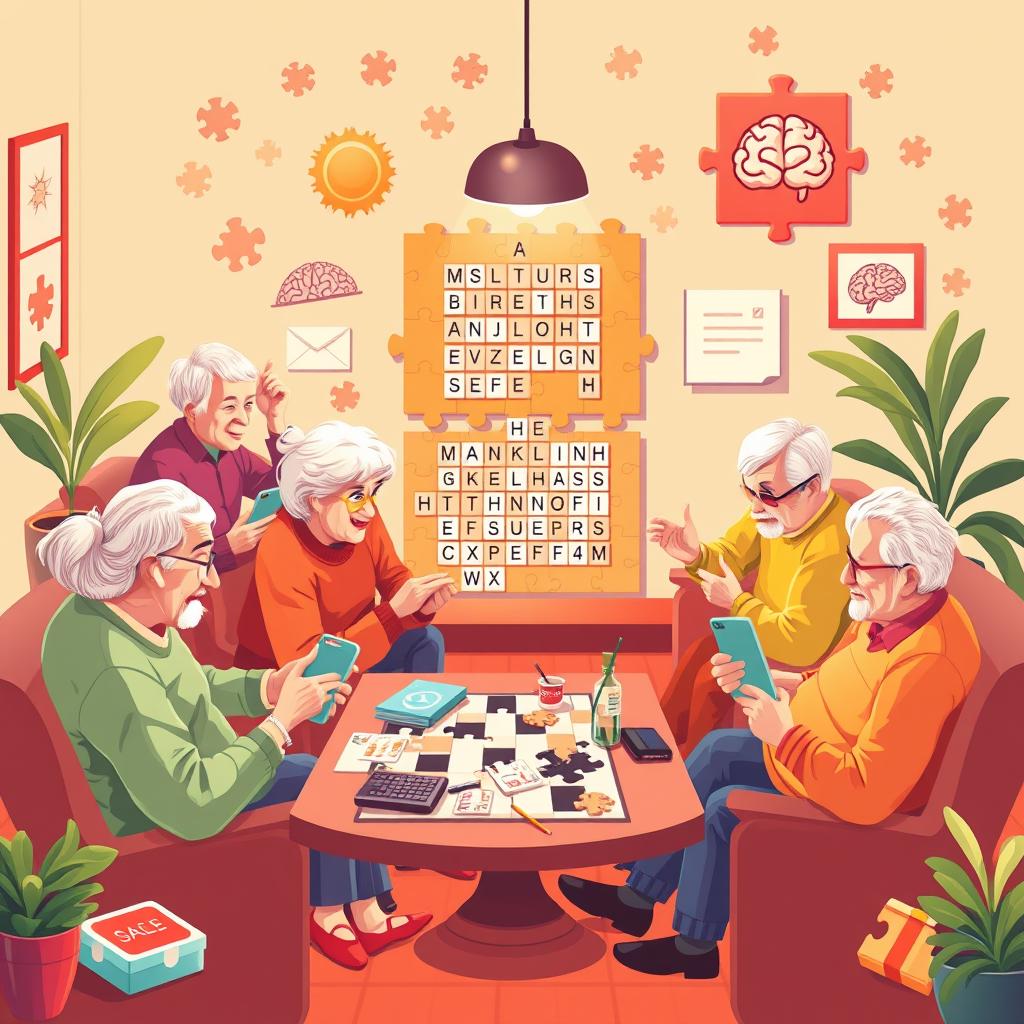
Enhance Cognitive Health and Well-Being with Puzzle & Memory Games for Seniors
Introduction
Are you looking for ways to keep your mind sharp and improve emotional well-being as you age? Engaging in puzzle and memory games can be a fun and effective solution. In this article, we’ll explore the benefits of these games for seniors, the types of games that are most suitable, and tips for selecting the right ones to suit individual needs.
Benefits of Puzzle & Memory Games for Seniors
Cognitive Improvement
Puzzle and memory games are powerful tools for maintaining cognitive health. These activities stimulate the brain by encouraging problem-solving, critical thinking, and memory retention. For seniors, regular engagement in such games can help delay or even prevent age-related cognitive decline.
Research shows that puzzles like Sudoku and crosswords activate different areas of the brain, promoting neuroplasticity—the brain’s ability to adapt and reorganize itself. This makes them an excellent way to keep mental faculties sharp over time.
Emotional Well-Being Boost
Beyond cognitive benefits, these games also contribute significantly to emotional health. Completing a challenging puzzle or solving a tricky crossword provides a sense of accomplishment, boosting self-esteem and confidence. Additionally, they offer a relaxing escape from daily stressors, reducing anxiety and improving mood.
Playing games with others, such as jigsaw puzzles or digital multiplayer options, fosters social interaction, further enhancing emotional well-being. It’s a win-win for both the mind and spirit!
Types of Games Suitable for Seniors
Traditional Favorites: Jigsaw Puzzles, Crosswords, Sudoku
Classic puzzles remain popular among seniors because of their simplicity and effectiveness. Jigsaw puzzles enhance spatial awareness and fine motor skills, while crosswords and Sudoku challenge vocabulary and logical reasoning.
These traditional games come in various difficulty levels, making it easy to find ones that match individual abilities. Plus, they don’t require any special equipment beyond paper, pencil, or a puzzle board.
Digital Memory Games
For tech-savvy seniors, digital memory games provide another engaging option. Apps designed specifically for cognitive training often feature colorful graphics, interactive features, and adaptive difficulty settings. Many apps track progress, allowing users to see improvements over time.
Some examples include Lumosity, Elevate, and Peak, all of which offer scientifically-backed exercises targeting memory, attention, and processing speed. Digital games are portable, accessible, and can be played anytime, anywhere.
Tips for Choosing the Right Game
Difficulty Level
Selecting a game at the appropriate difficulty level is crucial. A game that’s too easy may become boring, while one that’s overly complex could lead to frustration. Start with beginner-friendly options and gradually increase the challenge as skills improve.
Accessibility
Consider physical limitations when choosing a game. For example, seniors with arthritis might prefer digital puzzles over small, intricate pieces. Similarly, those with visual impairments should opt for games with larger fonts or high-contrast designs.
Engagement
The best game is one that keeps the player motivated and engaged. Look for games that align with personal interests—whether it’s word-based challenges, number puzzles, or visually stimulating jigsaws. Variety is key; rotating between different types of games prevents boredom and maintains excitement.
Here’s a quick checklist to guide your choice:
- Is the game age-appropriate?
- Does it cater to specific cognitive goals?
- Can it be easily incorporated into daily routines?
Incorporating puzzle and memory games into daily life offers countless benefits for seniors, from sharpening the mind to uplifting the spirit. Whether through classic jigsaw puzzles or modern digital apps, there’s something for everyone. So why wait? Encourage yourself or a loved one to start exploring these enriching activities today. Share your experiences in the comments below and let us know which games have made the biggest impact on your journey toward better cognitive health!


